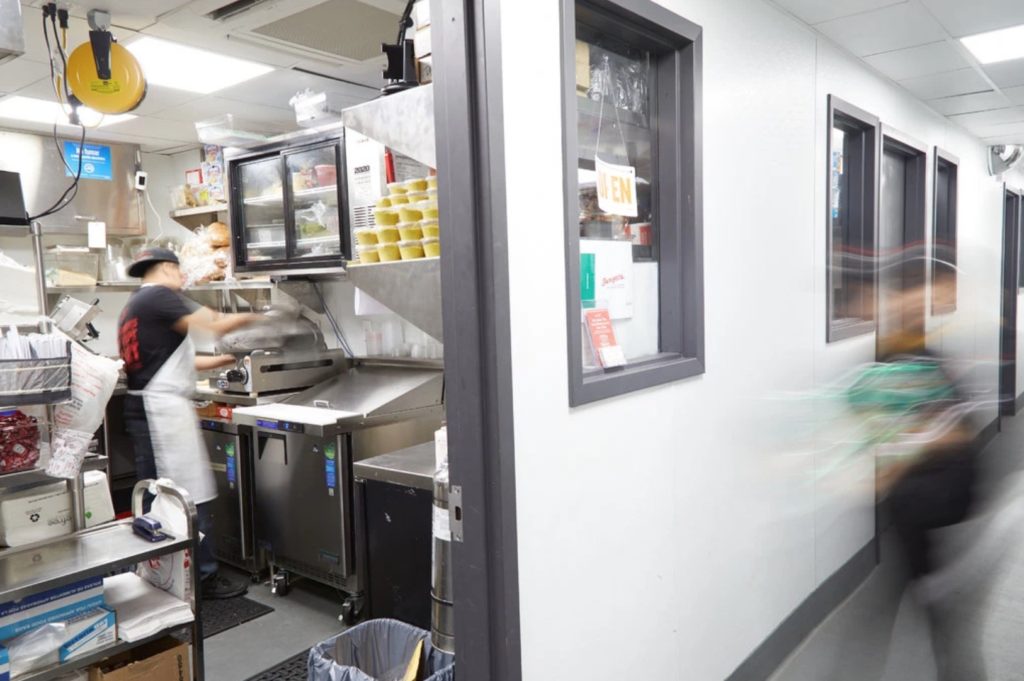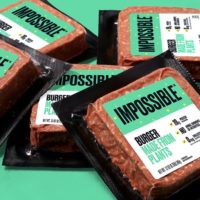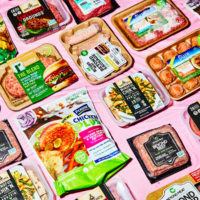
Source: New York Times
Every week we track the business, tech and investment trends in CPG, retail, restaurants, agriculture, cooking and health, so you don’t have to. Here are some of this week’s top headlines.
We need your support as well. Producing our newsletter takes a lot of time and resources, and we need to change our business model to keep it going. To date, we’ve funded our work through our events, sponsorships and consulting, which are all on hold due to the pandemic. If you find our newsletter to be a valuable resource, we hope you will consider making a one time or monthly contribution, so we can keep the newsletter going and free for those who can not afford a subscription fee. Whether it’s $5 or $500 every bit helps and shows us that you value our work. Not able to contribute right now? You can help by sharing our newsletter with friends and colleagues.
Check out our weekly round-up of last week’s top food startup, tech and innovation news below or peruse the full newsletter here.
1. Ghost Kitchens Could be a $1T Global Market by 2030, says Euromonitor – Restaurant Dive
The firm predicts cheaper, faster and more reliable delivery could help this segment capture 50% of drive-thru service ($75b), 50% of takeaway foodservice ($250b), 35% of ready meals ($40b), 30% of packaged cooking ingredients ($100b), 25% of dine-in foodservice ($450b), and 15% of packaged snacks ($125b).
2. Oat Milk Company Oatly Draws Investment From Blackstone-Led Group Including Oprah – Wall Street Journal
The company has sold a 10% stake for $200m, valuing the company at $2b.
3. Plant-Based Products Sell 23% Better in the Meat Section, Study Finds – Grocery Dive
Kroger and the Plant Based Foods Association conducted the study, including an in-store set within the conventional meat section and targeted emails.
4. As Coronavirus Ravaged Meatpackers, Minorities Bore the Brunt. Now Worker Groups Say Tyson and JBS Violated the Civil Rights Act. – Washington Post
People of color make up 87% of meat-processing plant Covid-19 cases. Worker groups have filed a complaint alleging the companies’ failure to follow CDC guidance had a discriminatory impact on the Black, Latino and Asian workforce.
5. Food Prices Rose in June for Sixth-Straight Month – NBC
The higher prices come as businesses across the country are rolling back their reopenings and laying off staff, creating further pressure for families trying to put food on the table.
6. Brave Robot Ice Cream Launches As the First Brand from the Perfect-Day Backed Urgent Company – TechCrunch
The founders of Perfect Day have joined with a longtime product developer in the dairy industry to create a new sustainably focused consumer food company called Urgent Company.
7. Burger King’s New ‘Reduced Methane’ Beef May Be All Hat, No Cattle – Civil Eats
The company’s new ad campaign touts the climate benefits of reducing methane from cows’ farts and burps by adding lemongrass to their feed. But without peer reviewed science, it’s too soon to tell if their claims will hold water.
8. What It’s Like to Work in an NYC Restaurant During the Pandemic, According to Staffers – Eater
While some are eager to return to work, most say they feel trapped in a Catch-22 situation about their return.
9. How Food Media Created Monsters in the Kitchen – New Republic
Journalists bear a lot of responsibility for the rise of the toxic celebrity chef. But they’re still in a state of denial.
10. Food & Ag Anti-Racism Resources + Black Food & Farm Businesses to Support
Check out our list of resources to learn about systemic racism in the food and agriculture industries. We also highlight Black food and farm businesses and organizations to support.
11. Google Unveils $10B India Tech Fund for Sectors Including Agriculture, Small Businesses – AgFunder
The Google for India Digitization Fund will invest in equity fundings, partnerships, and infrastructure in ag, healthcare and education, among other areas.
12. UK: Cloud Kitchen Startup Karma Kitchen Raises $318 million for Expansion as Food Delivery Explodes During the Pandemic – Business Insider
Karma Kitchen wants to become Europe’s biggest kitchen space provider by opening 53 new sites across the UK and Europe in the next five years.
13. Tyson Turns to Robot Butchers, Spurred by Coronavirus Outbreaks – The Wall Street Journal
The pandemic is speeding meatpackers’ shift from human meat cutters to automated ones, but machines can’t yet match people’s ability.
14. Cox and Bunge Back Growers Edge in $40M Series B Round – AgFunder
SG2 Ventures, Skyline Global Partners and Cox Enterprises led the round. The funding will mainly be used to build out its data analysis efforts. Growers Edge works with ag retailers and product manufacturers to crunch their data and produce a crop plan.
15. Danny Meyer Is Turning His Restaurants Into Commissary Kitchens – Bloomberg
Using $1 million from Brookfield Properties, the Union Square Hospitality CEO is teaming up with Rethink to feed hungry New Yorkers.
16. Covid-19 Has Increased Online SNAP Purchases Twentyfold—and Amazon, Walmart Have a Lock on Virtually All Those Sales – The Counter
More than 750,000 households had used food stamps benefits online as of late June. That’s up from just 35,000 in March.
Our newsletter is the absolute easiest way to stay on top of the emerging sector, so sign up for it today and never miss the latest food tech and innovation news and trends, Already signed up? Share the love with your friends and colleagues!
Related Posts
 Nature’s Fynd Launches Vegan Products from Yellowstone Fungi, WHO Confirms Frozen Food Can Transmit COVID + More
Nature’s Fynd Launches Vegan Products from Yellowstone Fungi, WHO Confirms Frozen Food Can Transmit COVID + More Impossible Cuts Prices by 20%, Big Food Lost $12B in Sales to Small Brands & Private Label in 2020 + More
Impossible Cuts Prices by 20%, Big Food Lost $12B in Sales to Small Brands & Private Label in 2020 + More First Commercial Sale of Cultured Meat, Plant-Based Meat Market to Hit $8.3B by 2025 + More
First Commercial Sale of Cultured Meat, Plant-Based Meat Market to Hit $8.3B by 2025 + More


